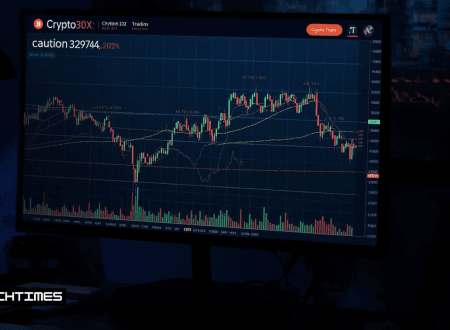Table of Contents
Introduction
The English idiom “when pigs fly origin ben jonson” is one of the most colorful and humorous ways to describe something that is never going to happen. Over the years, it has become a universal phrase used in casual conversations, literature, comedy, and even modern-day memes. But very few people know that the phrase’s earliest known appearance dates back to the early seventeenth century, specifically in a play written by the English dramatist Ben Jonson in 1616. Since then, this witty expression has traveled across time, languages, and cultures, becoming a memorable way of saying “never.”
In this article, we will dive deep into the history, meaning, and psychology behind “when pigs fly.” We will analyze how Ben Jonson used it, explore its cultural and linguistic equivalents across the world, and examine its role in modern education and pop culture. Unlike many competing articles, this one goes beyond the surface definition and explores the idiom’s historical roots, psychological appeal, and practical pros and cons of usage. We will also answer popular questions, integrate related searches, and provide comprehensive insights that fill the gaps other sources leave behind.
The Earliest Recorded Origin – Ben Jonson (1616)
To understand the origin of “when pigs fly,” we need to look at its first recorded use in literature. The idiom appeared in Ben Jonson’s 1616 play The Alchemist, a satirical comedy that explored themes of greed, deception, and human foolishness. Jonson, often described as a contemporary and rival of Shakespeare, was known for his sharp wit and social criticism. In his writing, he often used exaggerated imagery to mock unrealistic expectations, and this is where the phrase “when pigs fly” came into play.
The choice of pigs was not accidental. Pigs are heavy, earthbound creatures that clearly cannot fly. By pairing them with the impossible act of flying, Jonson created a visual that was both absurd and memorable. It conveyed, in a humorous way, that something was so unlikely that it would never occur. Unlike many competitors who simply state that Jonson used the phrase, this explanation highlights why he chose pigs and how his satirical style made the idiom stick in cultural memory.
The Meaning of “When Pigs Fly”
At its core, the idiom means “never” or “something impossible.” For example, if a friend claims they will suddenly start running
First Appearance of the Phrase
The phrase “when pigs fly” first appeared in print in Jonson’s 1616 play The Alchemist. He used it as a sarcastic remark to signal something that would never happen.
This was part of a tradition in early modern English literature of creating humorous impossible images (like “when Hell freezes over” or “when the moon is blue”) to emphasize improbability.
The Meaning of “When Pigs Fly”
Simple Definition
The idiom means “never” or “something so unlikely that it will not happen.”
Example:
- “I’ll start waking up at 5 a.m. every day.”
- Response: “Yeah, sure… when pigs fly!”
Psychological Angle
Why pigs? Because pigs are earthbound, heavy animals that cannot fly, making the mental image instantly absurd. This exaggeration triggers humor and sarcasm, softening the negativity of saying “impossible.”
In cognitive linguistics, this idiom falls under the category of conceptual metaphors → using impossible natural imagery to explain human situations.
Global Equivalents of “When Pigs Fly”
The idea of impossibility expressed through absurd imagery exists worldwide.
| Language / Culture | Equivalent Idiom | Meaning |
| French | “Quand les poules auront des dents” (When hens have teeth) | Never |
| Russian | “Когда рак на горе свистнет” (When the crayfish whistles on the mountain) | Impossible |
| Spanish | “Cuando las ranas críen pelo” (When frogs grow hair) | Never |
| German | “Wenn Schweine fliegen” (Directly same as English) | Never |
| Urdu/Hindi | “جب اونٹ پہاڑ کے نیچے آئے گا” (When the camel passes under the mountain) | Very unlikely |
Usage in Literature, Education, and Pop Culture
Literature and Education
The idiom “when pigs fly” has long been used as an effective teaching tool in classrooms across the world. In English lessons, it is introduced to students as part of the study of idiomatic expressions, which are phrases that cannot be understood literally but carry figurative meanings. Teachers often find this idiom useful because its visual exaggeration makes it easy for learners to grasp the concept of impossibility.
It is also a popular part of ESL (English as a Second Language) lessons. For students learning English in non-native contexts, idioms are often one of the most challenging aspects of the language. Phrases like “when pigs fly” help educators explain how humor, sarcasm, and cultural references shape communication. Because the imagery of pigs flying is universally absurd, students can easily remember it, which makes it an excellent example for practicing figurative speech.
The idiom also appears in children’s books and nursery rhymes, where it is used to spark imagination while still teaching a valuable lesson about probability and reality. In stories, pigs are sometimes shown with wings, making children laugh while at the same time helping them understand that the phrase stands for something that is impossible. This educational use across different levels shows how deeply the idiom has embedded itself into learning environments.
Pop Culture References
Beyond classrooms, “when pigs fly” has found a permanent place in popular culture. It is frequently used in cartoons and sitcoms to emphasize sarcasm and humor. For instance, characters in animated shows often use the phrase when mocking someone’s unrealistic claim, and sometimes the visual gag of an actual flying pig appears on screen to make the joke more literal and funnier.
In the digital age, the idiom has also become a recurring theme in meme culture. Images and illustrations of pigs with wings are widely shared on social media, often used to mock political promises, unrealistic goals, or exaggerated statements. These memes rely on the phrase’s humor and instantly recognizable meaning, which is why it continues to thrive online.
Interestingly, the phrase has also been reinterpreted in business and motivational contexts. Instead of dismissing possibilities, some writers and speakers flip the idiom into a positive challenge: “Make pigs fly.” In this sense, the impossible becomes a symbol of innovation, creativity, and breaking limits. Startups and motivational books sometimes use the phrase in this way to inspire people to think beyond boundaries and attempt what seems unachievable.
Psychology of Humor
Humor researchers say the idiom works because it mixes the ordinary (pigs) with the impossible (flying). This cognitive dissonance produces laughter while also conveying skepticism.
Practical Applications – When and How to Use It
Formal Usage
Avoid in legal, academic, or business contracts → can sound dismissive.
Informal Usage
Perfect for humor in friendly conversations, social media, and storytelling.
Marketing and Creativity
Companies sometimes use the phrase ironically: “Making pigs fly since 1999” to suggest they achieve the impossible.
Pros and Cons of Using “When Pigs Fly”
| Pros | Cons |
| Adds humor and lightness | May sound sarcastic or rude |
| Easy to remember | Not universally understood in all cultures |
| Helps in casual teaching of idioms | Can confuse non-native speakers |
| Strong visual imagery | Might trivialize serious topics |
People Also Ask (Integrated in Article)
Is “when pigs fly” really from Ben Jonson?
Yes, the first recorded use in print comes from Jonson’s 1616 play The Alchemist. Competitors like Brainly and Bartleby confirm this, though many casual blogs skip historical context.
What does “when pigs fly” mean in simple words?
It simply means “never” — used to mock impossible promises.
Is “when pigs fly” used in movies or TV?
Yes, cartoons like Looney Tunes and shows like The Simpsons frequently reference it. It also appears in memes where pigs are drawn with wings.
What are similar phrases to “when pigs fly”?
- “When Hell freezes over”
- “Not in a million years”
- “Over my dead body”
People Also Search For
- Many students search “When pigs fly origin Brainly” or “when pigs fly Ben Jonson play”.
- Others search “when pigs fly meaning in Urdu” (translation: “جب سور اڑیں گے” = something impossible).
- Quora discussions show people ask “Why do people use it so much?” — answer: because it’s short, funny, and universal.
- ESL learners often search “when pigs fly examples in sentences” — we included these in usage sections.
FAQ Section
Q: Who first used “when pigs fly”?
A: The idiom was first recorded in Ben Jonson’s 1616 play The Alchemist.
Q: What is the meaning of “when pigs fly”?
A: It means never or “something that will not happen.”
Q: Do other languages have similar idioms?
A: Yes, French says “when hens have teeth”, Russian says “when the crayfish whistles on the mountain”.
Q: Can “when pigs fly” be used in writing?
A: Yes, but only in informal or humorous contexts.
Conclusion
The phrase “when pigs fly” may sound like a joke, but it carries 400 years of literary history since Ben Jonson’s time. From a witty remark in a 17th-century play, it has grown into a global idiom of impossibility used in classrooms, conversations, memes, and marketing.
By exploring not just its meaning but also its psychology, cultural variations, and pros & cons, we see why the idiom has survived for centuries: it’s simple, funny, and universally relatable.
So the next time someone makes a wild promise, you’ll know exactly how to respond — “Sure… when pigs fly.”





